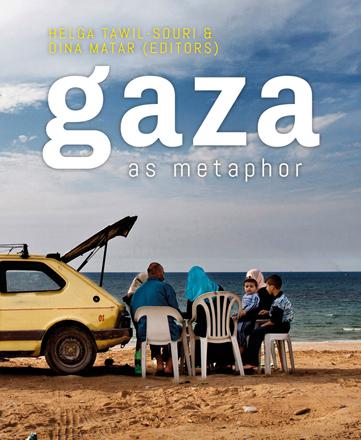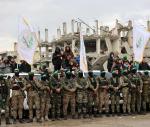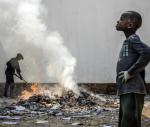You are here
‘To sing out our pleasure and pain’
Jul 13,2015 - Last updated at Jul 13,2015

Chief Complaint: A Country Doctor’s Tales of Life in Galilee
Hatim Kanaaneh
US: Just World Books, 2015
Pp. 255
History and individual dreams meet in Hatim Kanaaneh’s new book, a collection of short stories. Though tales are considered to be works of fiction, in this case, they convey no less truth than did Kanaaneh’s 2008 memoir, “A Doctor in Galilee”, wherein he chronicled decades of striving to meet the health needs of Galilee’s population.
In “Chief Complaint”, medicine is no longer the main subject, but serves as a metaphor to tell the story of the people of Arrabeh, the author’s home village, and by extension, the Galilee and all those Palestinians who remained in their homeland after 1948.
Relying on his experience as the first trained doctor in Arrabeh, Kanaaneh invents a set of vibrant characters, “composite personalities concocted out of multiple individual patients of mine”. (p. 18)
They appear in vignettes organised around recurring complaints he heard over the years — the “chief complaint” being the Israeli occupation that rendered them “strangers in their own land”.
The stories vividly convey the human impact of Israeli policies — the massive land confiscations and new laws that undercut ancient Palestinian patterns of communal farming, and how people survived in this topsy-turvy world. All this has been recorded in facts and statistics, but nothing compares to how Kanaaneh brings people’s spirit alive.
His characters are by turn defiant and defeated, idiosyncratic and compassionate, heroic and conniving, ambitious and dysfunctional, lulled by the Israeli policy of imposed ignorance or jealously guarding their inherent wisdom. Above all, they are humans caught up in an extremely unjust and paradoxical situation that has left them no choice, but to adjust — or leave the land that anchors their very being.
In this rendition, land confiscation is not just a technical intervention, but has broad social implications. With the hills topped by fortress-like settlements and common grazing land fragmented, shepherds lost their meeting place in the valley where they had practiced and composed folk songs. As one man related, “the valleys have lost their echo.” (p. 236)
Knowing that Israeli laws undermined Palestinian agriculture is one thing, but it is more poignant to hear elderly peasants tell how they were forbidden to plant certain crops, collect zataar in the mountains, barter produce, slaughter livestock or roll their own cigarettes. Many stories also attest to the Shin Bet’s meddling in Palestinians’ affairs.
Popular history and folk wisdom abound.
To Kanaaneh, an old man with a long-running infection is not merely a pitiful patient but a survivor — a legendary figure who fought in the 1936 uprising. Some tell harrowing tales of the nakba and the immediate aftermath when villagers kept trying to return to their land, or about early efforts at communist organising in the village. Other tales recount the abrupt transition to modern life styles.
Kanaaneh has great respect for his fellow villagers even when he disagrees with them. He gives due consideration to their own explanations for their ailments; even if they sound whacky, they have a certain rationale, like the elderly cousin who doesn’t consider his hearing loss a problem, since nothing being said “these days” is worth hearing.
Among families and married couples, there are great loves and sacrifices, but also cases of abuse. Kanaaneh doesn’t sanitise the villagers’ reminiscences, but lets them speak their mind. There are tales of those who retreated into exaggerated religiosity, of formidable women who defied tradition, of families who tried to make a life in the Israeli context and others who stayed fiercely independent.
In the preface, Kanaaneh states his intention to “bring our existence to light, to sing out our pleasures and pain, to echo our sense of alienation and dispossession, to face up to the dilemma of our schizophrenic identity, and to hail our occasional successes and our trust in the future.” (p. 14)
And he succeeds remarkably in both human and literary terms. By interweaving memory, contemporary dialogue, beautiful descriptions of the natural environment and how it has changed, popular culture, and the up’s and down’s of individual lives, he presents a quasi-oral history of his community that cannot fail to move any reader.
Related Articles
My Grandmother Sends Her Regards and ApologiesFredrik BackmanUK: Sceptre, 2016Pp.
Gaza as a MetaphorEdited by Helga Tawil-Souri & Dina MatarLondon: Hurst & Company, 2016Pp.
The Lanterns of the King of GalileeIbrahim NasrallahTranslated by Nancy RobertsAmerican University in Cairo Press, 2014Pp.



















